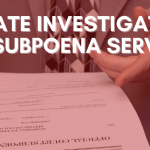Among the many tools at the disposal of defense attorneys, deposition transcripts stand out as a powerful resource that can significantly influence the trajectory of a case. Whether you’re dealing with a medical malpractice suit, a personal injury claim, or any other form of litigation involving expert testimony, the way you utilize deposition transcripts can mean the difference between winning and losing.
Understanding the Value of Deposition Transcripts
A deposition transcript is a written record of the oral testimony provided by a witness, typically recorded during pre-trial discovery. For defense attorneys, these transcripts offer a wealth of information that can be meticulously analyzed to uncover inconsistencies, biases, or weaknesses in an expert witness’s testimony.
Expert witnesses often play a pivotal role in swaying a jury’s opinion. Their specialized knowledge can lend credibility to a plaintiff’s claims, making it crucial for the defense to scrutinize every word they say during a deposition. This scrutiny helps to identify areas where the expert may have overstepped their expertise, contradicted themselves, or provided testimony that can be challenged.

Key Ways Deposition Transcripts Influence Cases
- Identifying Inconsistencies: Deposition transcripts provide a clear record of what an expert witness has stated under oath. By comparing their deposition testimony with their statements during the trial, or with prior depositions in other cases, defense attorneys can identify inconsistencies that may undermine the expert’s credibility.
- Preparing for Cross-Examination: A well-prepared cross-examination can be devastating to an expert witness’s credibility. Deposition transcripts offer the blueprint for crafting pointed questions that challenge the expert’s conclusions, qualifications, or objectivity. Effective cross-examination, based on the deposition transcript, can turn the tide in favor of the defense by exposing flaws in the expert’s testimony.
- Highlighting Bias: Experts are supposed to provide impartial testimony based on their specialized knowledge. However, deposition transcripts can reveal biases, especially if the expert has a history of consistently testifying on behalf of plaintiffs in similar cases. This pattern can be used to argue that the expert is more of an advocate than an objective observer, thus diminishing the weight of their testimony.
- Revealing Lack of Expertise: Not all experts are created equal. Deposition transcripts can be scrutinized to expose any gaps in an expert witness’s qualifications or experience. If an expert steps outside their area of expertise during their deposition, this can be highlighted during the trial to question their authority on the matter.
- Documenting Concessions: Sometimes, under the pressure of a deposition, an expert witness may make concessions that are damaging to the plaintiff’s case. These admissions can be pivotal when presented in court, potentially weakening the overall case against your client.
Leveraging Deposition Transcripts for a Strong Defense
The strategic use of deposition transcripts is an art form in legal defense. By diligently reviewing and analyzing these transcripts, defense attorneys can build a robust case that not only challenges the credibility of expert witnesses but also strengthens their client’s position.
It’s crucial to work with a team that understands the intricacies of deposition analysis. A boutique investigation firm like ours specializes in providing defense attorneys with the detailed insights needed to make the most of deposition transcripts. We uncover hidden inconsistencies, biases, and weaknesses that can be instrumental in discrediting expert testimony.
In litigation, where expert testimony can heavily influence the outcome, the importance of deposition transcripts cannot be overstated. These documents are a treasure trove of information that, when used effectively, can make or break a case. Defense attorneys who prioritize the careful examination of deposition transcripts are better equipped to challenge expert witnesses and secure favorable outcomes for their clients.










